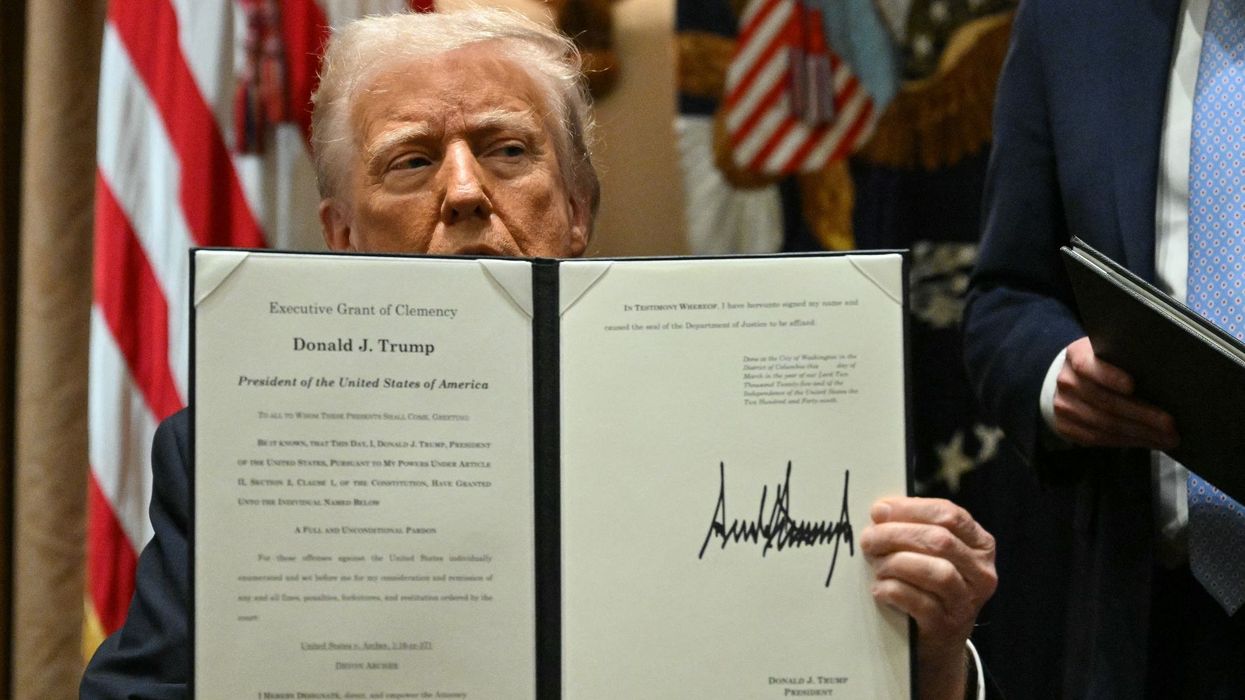March, 09 2015, 12:45pm EDT

Raising Interest Rates Could Have an Adverse Effect on Federal and State Budgets
Last week, the BLS announced that unemployment had fallen to 5.5 percent. Many analysts and policymakers questioned whether this would spur the Federal Reserve raise interest rates as has long been speculated. A new report from the Center for Economic and Policy Research (CEPR) points out, though, that if the Fed were to raise rates and keep unemployment from falling further, it would have a substantially negative impact on the budget.
WASHINGTON
Last week, the BLS announced that unemployment had fallen to 5.5 percent. Many analysts and policymakers questioned whether this would spur the Federal Reserve raise interest rates as has long been speculated. A new report from the Center for Economic and Policy Research (CEPR) points out, though, that if the Fed were to raise rates and keep unemployment from falling further, it would have a substantially negative impact on the budget.
The report, "The Budgetary Implications of Higher Federal Reserve Board Interest Rates," calculates the plausible size of the impacts of a policy that uses higher interest rates to deliberately slow the economy. Dean Baker, Co-Director of CEPR and author of the report, demonstrates that a change of this nature in interest rate policy by the Fed would have serious consequences for both federal and state budgets.
The report details three separate channels through which a policy of Fed tightening would worsen the federal budget picture. The first is directly through higher interest rates. The report shows that if the ratio of interest to debt remained at its 2015 level, as opposed to the levels projected by the Congressional Budget Office (CBO), it would save the government almost $2.9 trillion in interest payments over the next decade. Even if the interest rate hikes were kept to just half the projected level the savings would be almost $1.5 trillion.
The second channel is through the interest on the assets purchased through the various quantitative easing programs. If all of these assets were held, rather than sold off rapidly, as assumed by CBO, the savings to the Treasury would be more than $600 billion over the course of the decade.
The third channel is through greater output and lower payments for unemployment benefits and other transfers, if the unemployment rate could fall back to its 2000 average of 4.0 percent and remain there. In this case the cumulative budgetary gains would be almost $1.9 trillion. As the paper notes, the key to the 1990s budget surpluses were not the spending cuts and tax increases put in place by President Clinton and Congress, but rather the willingness of the Greenspan Fed to allow the unemployment rate to fall to levels that were lower than most economists had believed were sustainable at the time.
The paper points out that sustaining a lower rate of unemployment would also have a large effect on state budgets. The higher output associated with lower unemployment would mean more tax revenue and less money paid out for unemployment benefits and other transfer payments. Assuming a 4.0 percent unemployment rate for 2016, the paper calculates that budgetary savings in California would be over $6 billion for the year. In Illinois, it would be almost $2 billion.
The Federal Reserve's monetary policy should be based on its assessment of the state of the economy. Since there is a great deal of uncertainty about the economy's potential and the degree of tightness in the labor market, this report argues that it is clearly appropriate for the Fed to weigh to relative costs and benefits of erring too tightly or loosely.
Baker writes, "Erring on the side of an overly tight monetary policy, which keeps millions of people from getting jobs and tens of millions from seeing wage growth also has the effect of making the budget picture more difficult at all levels of government."
The full report can be found here.
The Center for Economic and Policy Research (CEPR) was established in 1999 to promote democratic debate on the most important economic and social issues that affect people's lives. In order for citizens to effectively exercise their voices in a democracy, they should be informed about the problems and choices that they face. CEPR is committed to presenting issues in an accurate and understandable manner, so that the public is better prepared to choose among the various policy options.
(202) 293-5380LATEST NEWS
UN Experts Say Those Ordering and Carrying Out US Boat Strikes Should Be 'Prosecuted for Homicide'
“US military attacks on alleged drug traffickers at sea," said two human rights experts, "are grave violations of the right to life and the international law of the sea."
Dec 04, 2025
Two United Nations rights experts warned that in numerous ways in recent weeks, the Trump administration's escalation toward Venezuela has violated international law—most recently when President Donald Trump said he had ordered the South American country's airspace closed following a military buildup in the Caribbean Sea.
But the two officials, independent expert on democratic and international order George Katrougalos and Ben Saul, the UN special rapporteur on protecting human rights while countering terrorism, reserved their strongest condemnation and warning to the US for the administration's repeated bombings of boats in the Caribbean and the Pacific, which have targeted at least 22 boats and killed 83 people since September as the White House has claimed without evidence it is combating drug traffickers.
The strikes, said Katrougalos and Saul, "are grave violations of the right to life and the international law of the sea. Those involved in ordering and carrying out these extrajudicial killings must be investigated and prosecuted for homicide.”
Human rights advocates have warned for months that the strikes are extrajudicial killings. Trump has claimed the US is in an "armed conflict" with drug cartels in Venezuela—even though the country is not significantly involved in drug trafficking—but Congress has not authorized any military action in the Caribbean.
Typically, the US has approached drug trafficking in the region as a criminal issue, with the Coast Guard and other agencies intercepting boats suspected of carrying illegal substances, arresting those on board, and ensuring they receive due process in accordance with the Constitution.
The Trump administration instead has bombed the boats, with the first operation on September 2 recently the subject of particular concern due to reports that Defense Secretary Pete Hegseth issued an order for military officers to "kill everybody" on board a vessel, leading a commander to direct a second "double-tap" strike to kill two survivors of the initial blast.
Hegseth and Trump have sought to shift responsibility for the second strike onto Adm. Frank "Mitch" Bradley, the commander who oversaw the attack under Hegseth's orders. Bradley was scheduled to brief lawmakers Thursday on the incident.
The White House has maintained Bradley had the authority to kill the survivors of the strike and to carry out all the other bombings of boats, even as reporting on the identities of the victims has shown the US has killed civilians including an out-of-work bus driver and a fisherman, and the family of one Colombian man killed in a strike filed a formal complaint accusing Hegseth himself of murder.
The UN experts suggested that everyone involved in ordering the nearly two dozen boat strikes, from Trump and Hegseth to any of the service members who have helped carry out the operations, should be investigated for alleged murder.
After Hegseth defended the September 2 strike earlier this week, Saul emphasized in a social media post that contrary to the defense secretary's rhetoric about how the boat attacks are "protecting" Americans, he is carrying out "state murder of civilians in peacetime, like executing alleged drug traffickers on the streets of New York or DC."
As Common Dreams reported last month, a top military lawyer advised the White House against beginning the boat bombings weeks before the September 2 attack, saying they could expose service members involved in the strikes to legal challenges.
Katrougalos and Saul urged the administration to "refrain from actions that could further aggravate the situation and ensure that any measures taken fully comply with the UN Charter, the Chicago Convention, and relevant rules of customary international law."
They also emphasized that Trump had no authority to declare that Venezuela's airspace was closed last week—an action that many experts feared could portend imminent US strikes in the South American country.
“International law is clear: States have complete and exclusive sovereignty over the airspace above their territory. Any measures that seek to regulate, restrict, or ‘close’ another state’s airspace are in blatant violation of the Chicago Convention,” said the experts. “Unilateral measures that interfere with a state’s territorial domain, including its airspace, risk fully undermining the stability of the region and are seriously undermining Venezuela’s economy."
Saul and Katrougalos further called on the White House not to repeat "the long history of external interventions in Latin America."
“Respect for sovereignty, nonintervention, and the peaceful settlement of disputes," they said, "are essential to preserving international stability and preventing further deterioration of the situation.”
Keep ReadingShow Less
Human Rights Group Warns US Gaza Plan Will Impose 'Unlawful Collective Imprisonment' of Palestinians as New Details Emerge
“The design of these proposed cities mirrors the historical model of ghettos,” said the Euro-Mediterranean Human Rights Monitor, which said the US plans to cram 25,000 people into areas smaller than a square kilometer.
Dec 04, 2025
A prominent international human rights organization is warning that the United States' plan for postwar Gaza will impose "unlawful collective imprisonment" on the Palestinian civilians who have survived two years of genocide.
In November, several news outlets reported on the Trump administration's plan to carve Gaza in two: a so-called “green zone” controlled by Israel and a “red zone” controlled by the militant group Hamas.
The US would construct what it called “Alternative Safe Communities” for Palestinians to live in the Israeli-controlled portion of Gaza, which is over half of the territory under the current "ceasefire" agreement.
The New York Times described these communities as "compounds" of 20,000 to 25,000 people, where Israeli officials reportedly argued they should not be allowed to leave.
The initial reporting raised fears that the US and Israel were constructing what would amount to a "concentration camp," where Palestinians would be forced to live in squalid conditions without freedom of movement.
On Wednesday, the Euro-Mediterranean Human Rights Monitor released new details on how Palestinians, currently facing mass displacement from their homes in the portion of the strip not occupied by Israel, would be corralled into the green zone under the US proposal.
The Geneva-based group issued a stark warning about the plan, which it said carried "grave risks, including the effective displacement of Palestinians from their homes and the transformation of large parts of Gaza into closed military zones under the direct control of the Israeli army."
“Entry and exit would be permitted only through security screening, effectively converting these sites into overcrowded detention camps that impose severe restrictions on residents’ freedom of movement and daily life."
Euro-Med's report explains that the transfer of Palestinians would be carried out using "various pressure tactics."
"This is done by creating a coercive environment in the red zone and making access to relative protection and basic services conditional on relocating to designated areas within the green zone, following extensive security screening and vetting," the report says. "This removes any genuine element of consent and places the process squarely within the scope of forced displacement prohibited under international humanitarian law."
It also provides new details on the conditions Palestinians would be subject to once they've arrived: "The plan includes the establishment of 'cities' of prefabricated container homes (caravans) in the green zone, each housing around 25,000 people within an area of no more than one square kilometer and enclosed by walls and checkpoints."
This means these Palestinian cantons would be over three times as densely populated as the Tel Aviv District, the most crowded in Israel, which has about 8,130 people per square kilometer.
"Entry and exit would be permitted only through security screening, effectively converting these sites into overcrowded detention camps that impose severe restrictions on residents’ freedom of movement and daily life," the report continues.
This is not the first proposal to use the promise of safety to lure Palestinians into an enclosed space without the right to leave.
Earlier this year, following US President Donald Trump's call for the people of Palestine to be forcibly removed from the Gaza Strip, Israeli Defense Minister Israel Katz proposed the creation of a massive “humanitarian city” built on the ruins of Rafah that would be used as part of an “emigration plan” for hundreds of thousands of displaced people.
Under that plan, Palestinians would have been given “security screenings” and once inside would not be allowed to leave. Humanitarian organizations, including those inside Israel, roundly condemned the plan as essentially a “concentration camp.”
Euro-Med said that the design laid out in the new US plan "mirrors the historical model of ghettos, in which colonial and racist regimes confined specific groups to sealed areas surrounded by walls and guard posts, with movement and resources controlled externally, as seen in Europe during World War II and in other colonial contexts."
Keep ReadingShow Less
‘Somebody’s Getting Rich’: Senator Suggests Trump Pardon Spree Is Yet Another Grift
"There's clearly a whole group of people around him that are making millions of dollars, and they're handing out favors to folks in the form of pardons," said Democratic Sen. Chris Murphy.
Dec 04, 2025
A Democratic US senator suggested during a television appearance late Wednesday that President Donald Trump's flurry of pardons for fraudsters and other white-collar criminals—from disgraced politicians to former corporate executives—is yet another cash grab concocted by the president's inner circle and lobbyists with ties to the White House.
“My sense is that somebody is getting rich, ultimately,“ Sen. Chris Murphy (D-Conn.) told MSNBC's Chris Hayes shortly after Trump pardoned a former entertainment venue executive who was indicted by the president's own Justice Department over the summer.
"There is a cabal of administration officials and MAGA-friendly lobbyists that are in league together," Murphy continued. "They all huddle together at these elite restaurants and clubs in Washington, DC, and they likely hatch deals in which, if somebody pays a MAGA-affiliated lobbyist a couple hundred thousand dollars, then maybe you’ll be able to get a pardon.”
"There's clearly a whole group of people around him that are making millions of dollars, and they're handing out favors to folks in the form of pardons in order to make sure that they get their pockets lined," the senator added. "That's just, like, bread and butter corruption."
Watch:
The pardons Trump is handing out are a huge, growing scandal that not enough people are talking about. This is a money making operation - for for Trump, his family, his crypto pals, and the Trump-affiliated lobbyists and grifters who the pardon seekers pay. pic.twitter.com/FwLRyHDMqN
— Chris Murphy 🟧 (@ChrisMurphyCT) December 4, 2025
Since the start of his second term, Trump has used his pardon power to rescue well-connected executives and political allies from accountability, invariably claiming—without evidence—that the Biden administration manufactured the charges.
Many of those pardoned have been accused or convicted of white-collar crimes; "fraud" appears 57 times on the Justice Department page listing the names and offenses of those who have received clemency from the president this year.
Trump's willingness to unthinkingly pardon fraudsters has spawned a lucrative business for lobbyists and consultants linked to the administration. NBC News reported earlier this year that "two people directly familiar with proposals to lobbying firms said they knew of a client’s offer of $5 million to help get a case to Trump."
Changpeng Zhao, the billionaire founder of the cryptocurrency exchange Binance, reportedly had a lobbyist working to secure his pardon, which came in late October.
"I don't know who he is," Trump said when asked about the decision, adding that "a lot of people asked me" to pardon Zhao, who pleaded guilty in 2023 to "failing to maintain an effective anti-money laundering program."
Trump also made history with what's believed to be the nation's first-ever presidential pardon of a corporation: HDR Global Trading, the owner and operator of crypto exchange BitMEX. The company was sentenced earlier this year to a $100 million fine for violating anti-money laundering laws.
In a report published in September, Murphy detailed how corporate pardons "are happening throughout the federal government, in the form of rescinded orders, dropped cases, and the first-ever presidential pardon for a corporation." The watchdog group Public Citizen estimates that the Trump administration has halted or dropped more than 160 corporate enforcement cases since the start of the president's second term.
"Corporate pardons are just one of the ways that Trump is replacing democracy and rule of law with authoritarian power and rule by personal favor," Murphy wrote in his report. "If we are going to save our democracy, we need to act now."
Keep ReadingShow Less
Most Popular


